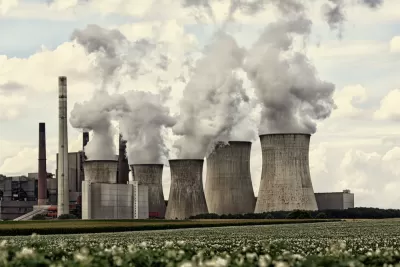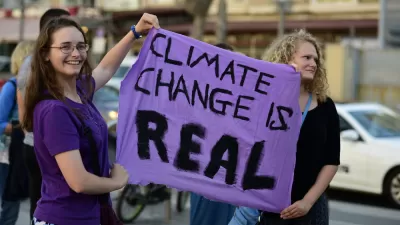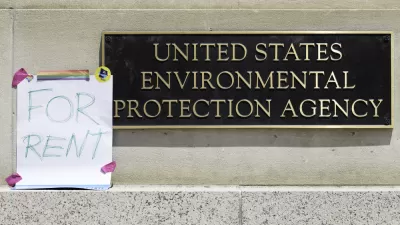A comprehensive review of the 100 largest cities in the United States shows which mayors have followed up on pledges to cut carbon emissions.

In recent years, more than ever, municipalities and state governments have pledged to take action against climate change and reduce greenhouse emissions in their jurisdictions.
"Since 1991, over 600 local governments in the United States have developed climate action plans that include greenhouse gas inventories and reduction targets, reflecting growing public concern about the consequences of a warmer planet. Recently, this local action has been accelerating. But despite numerous studies, we still don’t know if all this effort is working," writes Mark Muro.
Brookings Institution researchers explored local actions to reduce emissions and which of the nation's 100 largest cities are walking the walk when it comes to addressing climate change.
"About two-thirds of cities with climate pledges are currently lagging in their targeted emissions cuts, while 13 others don’t appear to have available emissions tracking in place," Muro reports.
Even partial adherence to climate pledges has eliminated about 365 million metric tons of carbon pollution according to Muro. Still, it's unrealistic to believe that meeting long-term goals related to climate change will be achieved without a robust and diligent review and assessment on a national scale.
If the United States reenters the Paris Climate Agreement, the burden still rests with individual cities. "[D]iplomacy won’t matter much if the rest of the world doesn’t believe our promises will stick and doesn’t see climate action in areas that have resisted thus far. The solution to this problem isn’t more diplomacy, but more mayors making (and delivering on) compelling emission reductions pledges," as Muro puts it.
FULL STORY: Cities are pledging to confront climate change, but are their actions working?

Alabama: Trump Terminates Settlements for Black Communities Harmed By Raw Sewage
Trump deemed the landmark civil rights agreement “illegal DEI and environmental justice policy.”

Study: Maui’s Plan to Convert Vacation Rentals to Long-Term Housing Could Cause Nearly $1 Billion Economic Loss
The plan would reduce visitor accommodation by 25% resulting in 1,900 jobs lost.

Planetizen Federal Action Tracker
A weekly monitor of how Trump’s orders and actions are impacting planners and planning in America.

Wind Energy on the Rise Despite Federal Policy Reversal
The Trump administration is revoking federal support for renewable energy, but demand for new projects continues unabated.

Passengers Flock to Caltrain After Electrification
The new electric trains are running faster and more reliably, leading to strong ridership growth on the Bay Area rail system.

Texas Churches Rally Behind ‘Yes in God’s Back Yard’ Legislation
Religious leaders want the state to reduce zoning regulations to streamline leasing church-owned land to housing developers.
Urban Design for Planners 1: Software Tools
This six-course series explores essential urban design concepts using open source software and equips planners with the tools they need to participate fully in the urban design process.
Planning for Universal Design
Learn the tools for implementing Universal Design in planning regulations.
Caltrans
Smith Gee Studio
Institute for Housing and Urban Development Studies (IHS)
City of Grandview
Harvard GSD Executive Education
Toledo-Lucas County Plan Commissions
Salt Lake City
NYU Wagner Graduate School of Public Service





























